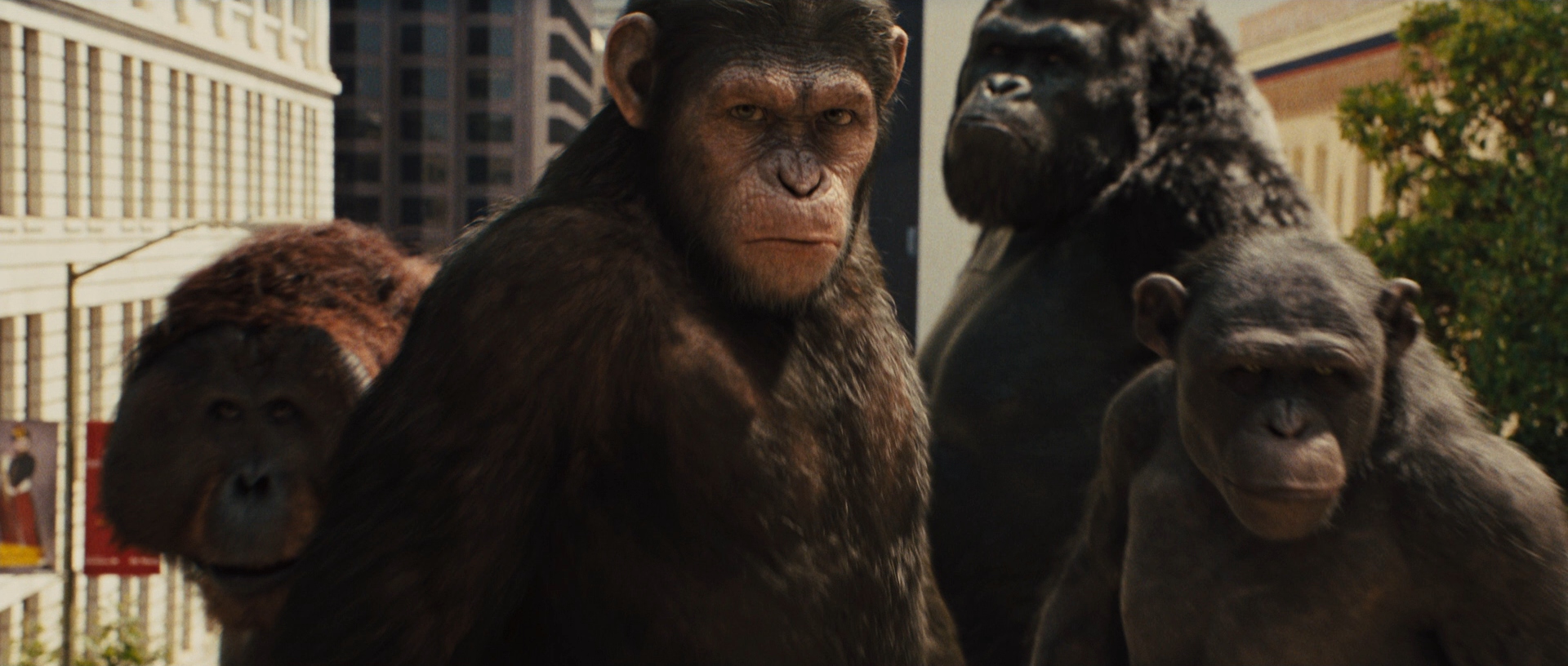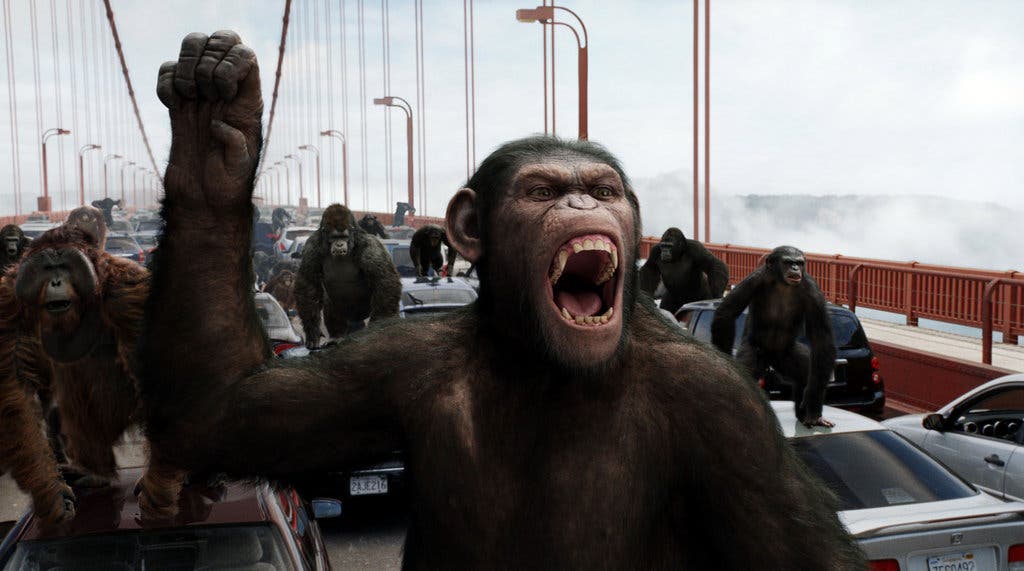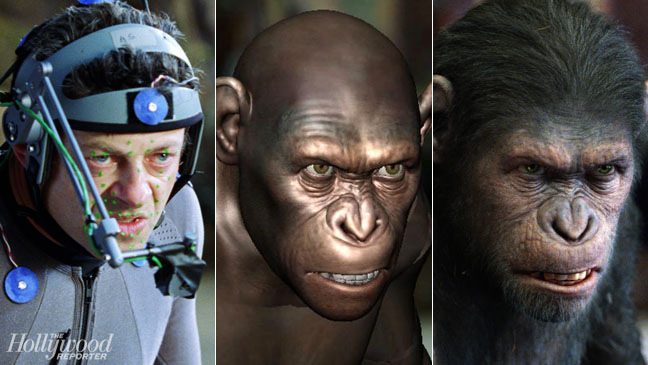Rise of the Planet of the Apes (2011): A Reinvention of a Classic Franchise

The Planet of the Apes franchise was a worldwide success back in 1968, being revolutionary in storytelling, makeup, and visual effects. It even spawned 4 sequels across the 1970s and a much maligned reboot in 2001. So when it was announced that the Planet of the Apes franchise received a reboot/prequel film, it was safe to say skepticism was high. But against all odds, it succeeded.
Will Rodman (played by James Franco) is a scientist at a San Francisco lab testing drugs that could help cure Alzhiemers, which Will’s father has been diagnosed with. But when one of the chimpanzee test subjects breaks loose and is killed on the premises, testing is shut down indefinitely. Learning that the chimp killed had a baby she was protecting, Will brings it home to care for, only to learn that the baby chimp was exposed to the same drug his mother was, making him extremely intelligent. Will raises and names him Caesar (played by Andy Serkis). But after a string of misunderstandings, Caesar is remanded into the custody of a state zoo which begins another chain of events that will alter the course of history and evolution.

When I first saw this film, I didn’t know of the original Planet of the Apes films or the reboot so I had no previous opinions or conflicting emotions regarding the original. And I do not believe it would have mattered if I saw the original or not because Rise of the Planet of the Apes is more than capable of standing on its own with no comparisons necessary. But where they do improve is with the visual effects, using motion capture to portray the ape characters as realistically as possible instead of the make up and prosthetics used in the 1968 original. As nice as it is to use practical effects over CGI, in this case it was the better idea to use CGI not just because of the modern technology available, but it would possibly be less constricting to give performances under visual effects rather than the pounds of make up the original film used.

Along with the improved visual effects, there are career defining performances; particularly the Godfather of Motion Capture, Andy Serkis as Caesar. Andy Serkis has given many performances under the guise of visual effects for a very long time, with his most recognizable character being Gollum from The Lord of the Rings or King Kong, bringing to life both classic and colorful characters. Serkis manages to bring to life arguably his best performance with a nuanced portrayal of a fish out of water trope with the intelligent ape. He shows his naive early years, being beaten down and broken time and time again, and ultimately showing amazing leadership to other apes that are being either mistreated or experimented on without consent. Additionally, James Franco is really good with his drive to save his father from a disease being very relatable along with all the other supporting players involved.

This film also has some of the best and climatic moments that can be seen on a movie screen, such as Caesar speaking his first word. Hearing Caesar scream an actual word manages to take your breath away in the best ways and leaves you in awe. I believe I could have heard a pin drop when I saw this part in theaters, it was that jaw dropping. Another moment worth mentioning is Caesar protecting Will’s father from an angry neighbor while his father is having a memory lapse and gets in the wrong car. We see the angry and protective instincts Caesar holds if you mess with his family, but it also shows what other people think when it is seen out in public and the fear of an aggressive and intelligent animal in the neighborhood can hold; and it is a little heartbreaking. I also have to mention the action. While much of the action is constrained to the 3rd act, it is absolutely epic and inventive, by using the apes’ climbing abilities and strength to the filmmakers advantage to make for a unique ambush attack on the Golden Gate Bridge.
Rise of the Planet of the Apes may be a handful of a film title, but the film is not. It conveys a touching story of self-discovery with both deep emotion and impressive visual effects. Andy Serkis proves again that he is a master of his craft as Caesar and he should receive more recognition for his work, especially in the motion capture area. But what is even more impressive is that Rise of the Planet of the Apes managed to not only shake off the sour taste that 2001’s Planet of the Apes left in our mouths but possibly even surpassed the original Planet of the Apes franchise’s legacy with a single film.







